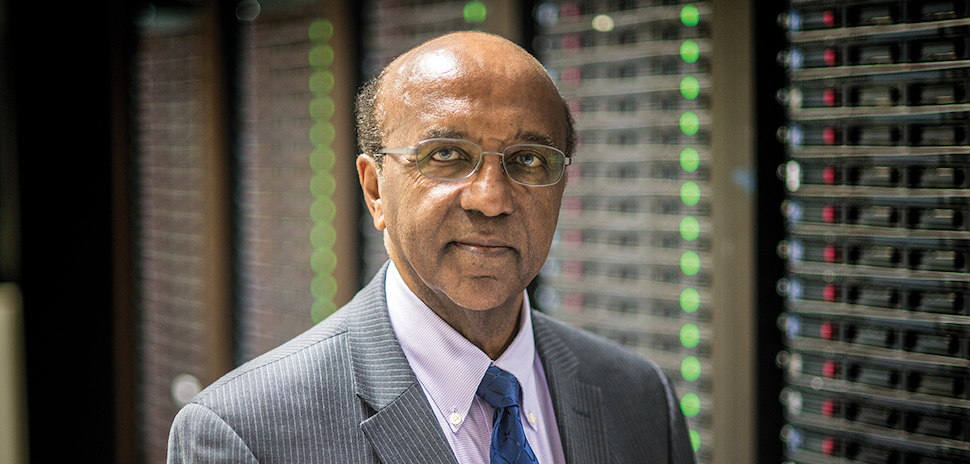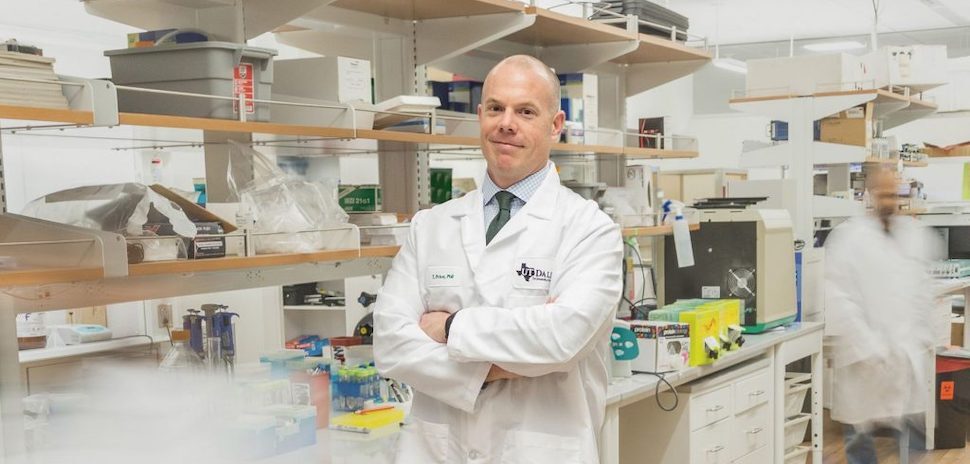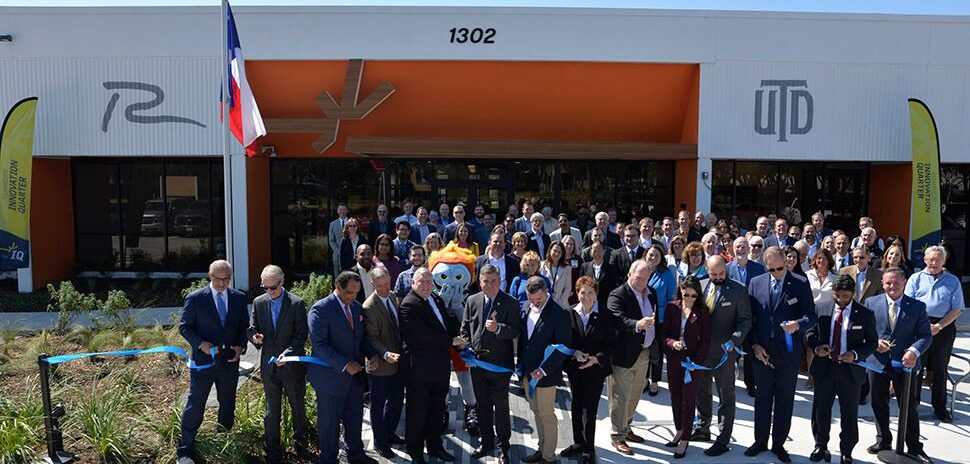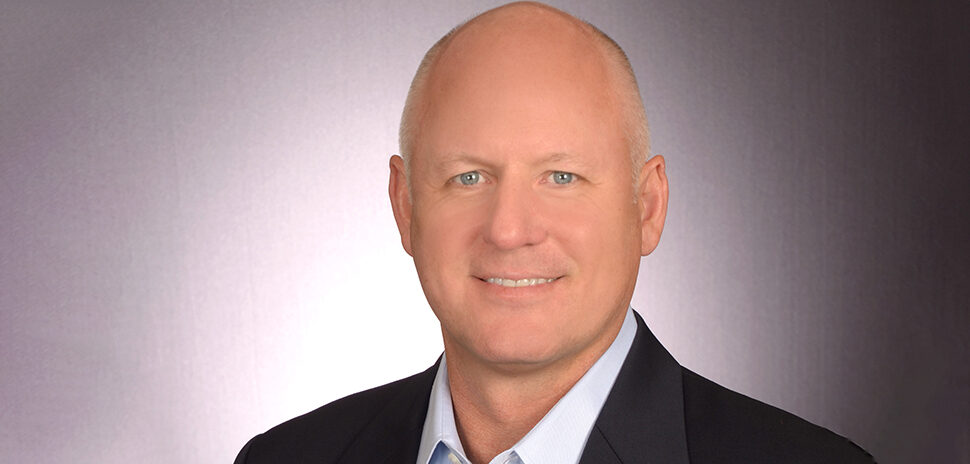Some things you just gotta keep cool: your temper on the Tollway at 8:45 a.m., your drink after work, and—maybe we should’ve put this first—data centers.
Cooling systems are one of the most critical components of any data center, where endless rows of servers do the processing, storage, and network connections that keep the world in business. But all that hardware generates heat. That’s why cooling systems often consume nearly half of a data center’s total energy usage.
If the ideal temperature between 64.4° F and 80.6° F is not achieved, according to the American Society of Heating, Refrigerating, and Air Conditioning Engineers, IT equipment can malfunction and require expensive repairs and downtime.
With the data center market booming worldwide—especially in North Texas, where the market recorded the most active quarter of leasing of all time in Q4 2021—work underway at the University of Texas at Arlington could have a big impact.
UTA team gets $2.84M grant for hybrid cooling tech
A team at UTA has received a $2.84 million grant to develop a hybrid cooling technology that will aid high-power data centers and server farms, the university said.
The grant is part of the U.S. Department of Energy’s COOLERCHIPS (Cooling Operations Optimized for Leaps in Energy, Reliability, and Carbon Hyperefficiency for Information Processing Systems) program, which recently awarded $40 million for 15 projects that will develop high-performance, energy-efficient cooling solutions for data centers.
UTA’s team is led by Dereje Agonafer, presidential distinguished university professor in UTA’s department of mechanical and aerospace engineering. Agonafer said UTA’s grant will be used to develop “a holistic novel hybrid cooling technology to address the growing need for advanced thermal management solutions and energy efficiency for data centers.”
The co-principal investigators for this grant are Professor Damena Agonafer of the University of Maryland, Professor Nenad Miljkovic of the University of Illinois, and Professor Sumanta Acharya of the Illinois Institute of Technology. Roger Schmidt, a member of the National Academy of Engineering and a renowned expert in liquid cooling, is a consultant on the project, UTA said.
Aiming to exceed the COOLERCHIPS targets—and save ‘a massive amount of money’
UTA’s Agonafer says one of the goals of the project is to exceed COOLERCHIPS targets for IT load at data centers, “resulting in cooling technology that will have extendibility for future generations of servers.”
“The proposed hybrid cooling can save technology companies that employ the servers a massive amount of money in energy costs,” Agonafer said in a statement. “In turn, that reduction in operating costs could be passed along to the consumer.”
Agonafer, a member of the National Academy of Engineering, leads two centers at UTA: the National Science Foundation Industry-University Cooperative Research Center in Energy Efficient Systems and the Electronics, Micro-electromechanical Systems and Nanoelectronics Systems Packaging Center.
Data centers account for 2% of total U.S. electricity consumption
According to the Department of Energy, data centers use 2% of the electricity consumed in the U.S., and data center cooling can account for up to 40% of that overall usage.
The DOE’s selected projects in this program—located at universities like UTA and also at national labs and businesses—aim to reduce the energy necessary to cool data centers. If successful, the efforts will lower the operational carbon footprint associated with powering and cooling this critical infrastructure, and support White House goals to reach net-zero carbon by 2050.
Funding for the project is supported by DOE’s Advanced Research Projects Agency for Energy.
“Climate change, including severe weather events, threatens the functionality of data centers that are critical to connecting computing and network infrastructure that power our everyday lives,” U.S. Secretary of Energy Jennifer M. Granholm said in a DOE news release. “DOE is funding projects that will ensure the continued operation of these facilities while reducing the associated carbon emissions to beat climate change and reach our clean energy future.”
‘On the cutting edge’ of thermal management efficiency
UTA Mechanical and Aerospace Engineering Chair Erian Armanios says that Agonafer “is on the cutting edge of thermal management efficiency. His research is essential to artificial intelligence, advertising cloud computing, computer software, computer hardware, internet, social media, virtual reality and, ultimately, everyday life.”
Agonafer has been working with large computer server companies for decades, UTA said, and is currently collaborating with Google, Intel, META, Microsoft, and NVIDIA as well as several other companies in the general area of cooling of data centers. He’s an honorary member of the American Society of Mechanical Engineers, an AMSE Life Fellow, fellow of the American Association for the Advancement of Science, and life fellow of the National Academy of Inventors.
Since he joined UT Arlington in 1999, Agonafer has mentored more than 250 graduate students, with 15 doctoral and five master’s students currently under his tutelage. In 2019, he was elected to the National Academy of Engineering.
According to UTA, Agonafer’s awards include the 2008 Semi-Therm Thermi Award; the 2009 InterPACK Excellence Award; the 2014 Intersociety Conference on Thermal and Thermomechanical Phenomena in Electronic Systems Achievement Award; the 2014 National Society of Black Engineers Golden Torch Award; the 2019 ASME Heat Transfer Memorial Award; the 2020 SemiTherm Thermal Hall of Fame Lifetime Achievement Award; and the 2020 Howard University Alumni Award for Distinguished Postgraduate Achievement.
![]()
Get on the list.
Dallas Innovates, every day.
Sign up to keep your eye on what’s new and next in Dallas-Fort Worth, every day.


































































